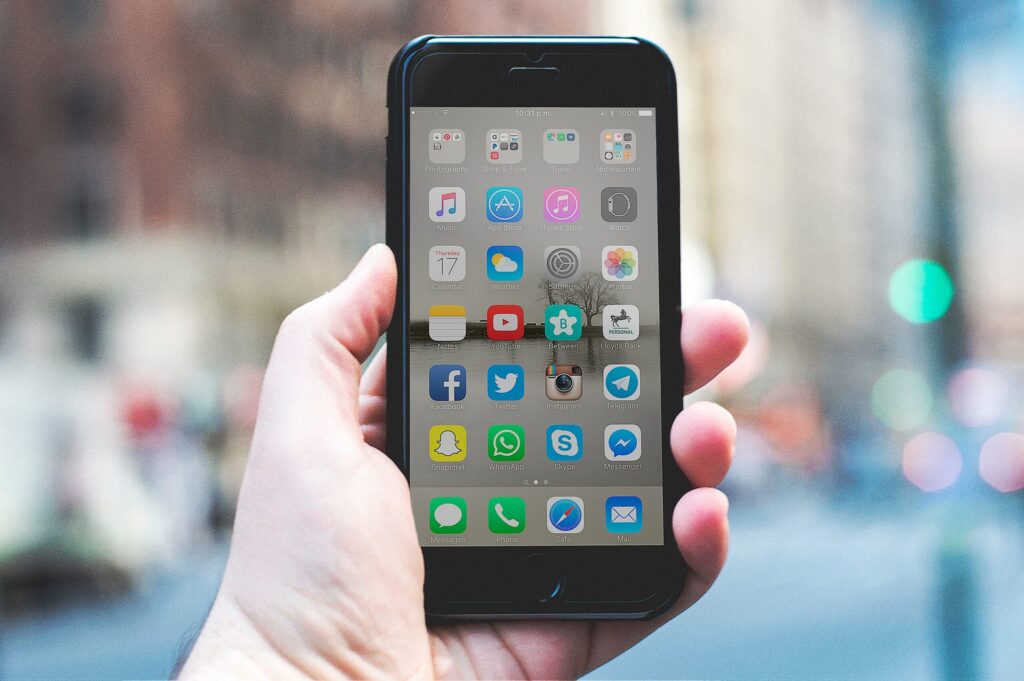
Social media is a fact of modern-day life. From Twitter to Instagram to Facebook, most of us have at least one social media profile these days. For the most part, these social media sites can seem harmless. We share news stories we like, or post photos of loved ones or tweet a funny article.
And if we have our social media accounts set to “private,” we may think that we have online privacy.
Unfortunately, anything you post online can be seen by almost anyone– even with the strictest privacy settings! If you are involved in a car accident lawsuit, your social media profile and social media posts could jeopardize your ability to collect compensation in your accident injury claim. Insurance claim adjusters and defense attorneys will use anything that you post against you!
Car accident lawsuits are already complicated, no need to make social media mistakes that could’ve been avoided.
Our Nevada car accident lawyers know that making statements on social media can compromise your chances at a successful outcome in your case. There’s no need to dialogue on social media about your accident; you could always choose to tell friends about it offline. Instead of tweeting or posting, we recommend picking up the phone and calling Anthem Injury Lawyers at (702) 857-6000. We offer a free initial consultation. Talk to us instead of posting online. Let us help you win your car accident case.
Why Posting on Social Media Can Harm Your Case
If you get into an auto accident, it is important to understand how social media can affect your case. Both the insurance company and the defense counsel have the right to demand access to your social media accounts to gather evidence relevant to the case.
Information will be used against you.
- Almost anything you post or share online about the car accident can work against you because it can easily be taken out of context.
- Photos, tagged photos, videos, comments, private messages and location check-ins are all fair game. If you post photos involving the car crash that can be used as evidence. If you post a photo of you and your friends at dinner the night of the accident, that can also be used as evidence. In a personal injury case, a lawyer may argue that you must be exaggerating your injuries since you were well enough to go out to dinner. If someone tags a photo of you working out, that can be proof your injuries were minor.
- Once your car accident lawsuit is open, your lawyer cannot tell you to take down any social media posts. That would be considered destruction of evidence. You could even face serious legal repercussions. Best not to post anything at all until your case is closed.
Nothing is private.
- Online privacy, especially related to social media, is a myth. Almost everything you post online can be seen by anyone. Someone can screenshot a private profile or message and share it. Someone could friend request you to gain access to your information.
- When you have strict privacy settings, your information might be harder to access, but not impossible. Private messages, private posts, and private profiles are still accessible to the determined defense attorney, insurance claim adjuster, or the other driver.
- Attorneys can subpoena your social media profiles. Judges tend to side with the defense attorney. If their subpoena is granted, they can get access to everything including your private messages and status updates.
Nothing is protected.
- Emails and text messages are legally protected documents. However, no such protections exist for social media posts and activity.
- Legally, social media posts are considered public statements.
Social Media Don’ts
- Don’t accept any new friend requests or follows. It’s easy these days to hide behind a computer screen. If you receive a new friend request, how do you know they’re really who they say they are? For the sake of preserving the integrity of your personal injury case, don’t accept any friend requests or follows until the case is closed.
- Don’t post photos or videos of the crash scene. This one may seem obvious, but it is good to remember that photos and videos posted on your social media profile can be taken out of context. It is easy for someone on the other side to comment on your photo or video in a way that makes you look bad. Photos and videos can be very persuasive to a jury. Best to not post anything of or related to the accident.
- Don’t admit fault. You probably won’t post anything that explicitly admits fault, but even a simple statement like “I totaled my car” could shift liability.
- Don’t express regret. Expressing regret or remorse can also potentially shift liability.
- Don’t post evidence that minimizes your injuries. Posting a selfie at the beach or after a workout may give an impression that your injuries aren’t as serious as you are claiming. Even if these pictures are from before the accident, it won’t look good for your case.
- Don’t post any aggressive or angry rants. You might want to vent about the car accident, how it ruined your day or how your neck hurts from whiplash. Remember, legally these statements are considered public so better not to post anything until the case is closed.
- Don’t delete anything. If you are second-guessing some posts after the car accident claim has been opened, do not delete them! Chances are, the insurance adjuster and defense attorney have taken screenshots of your posts or profile. Get professional legal advice to know how to proceed.
- Don’t “check-in” or share the location. It might not seem like a big deal to “check-in” at your yoga studio or to tag a photo’s location at the park. But if your personal injury claim includes limited mobility, these posts may contradict your case.
- Don’t lose track of your other social media accounts. Chances are, you have more than a Facebook profile. Most of us have multiple social media accounts, but we may only use one or two on a regular basis. Don’t forget about the other social media accounts because they might contain information that can be used against you in a car accident case. If you don’t use these accounts at all, you might be considering deleting them altogether. However, consult your personal injury attorney FIRST to make sure it doesn’t look like you are destroying evidence.
- Don’t share medical information online. Do not post anything related to your medical care or condition. Don’t post about doctor visits, medical procedures, medical bills, medications, medical equipment or medical condition. Even if they are not correlated to the accident, this information can be used against you. If you have a crowdfunding page to help cover certain medical costs, try to share that page with friends and loved ones through email or text messages. Also, make sure that little information about the accident or your injuries is on the website.
- Don’t forget to tell your friends and family members not to post about you or tag you in photos.
- Don’t share details about the accident. Social media can be an effective tool to keep your friends and family updated about what is going on in your life, all at the same time. It can be tempting to post updates about the crash, any injuries, and your recovery. Since we tend to share mostly good news on social media, you might be inclined to post that you are “healing well” or “feeling better.” But these simple statements or comments can be used against you. Better to reach out to family members and loved ones offline.
We hope that our lists of do’s and don’ts helps you remain clear of complications that can ensue from social media. Don’t jeopardize your chance to win your car accident case by posting sensitive information online. Instead, call us at (702) 857-6000. Talk to us about your car accident case. We’ll keep your information confidential and help you gain a positive outcome for your case. Let our experienced auto accident lawyers help you gain the compensation you deserve. Make an appointment with us for your free initial consultation.
Experienced Las Vegas Car Accident Attorneys
If you or a loved one has been in a car accident in the State of Nevada, you should speak to an experienced personal injury attorney who is licensed in Nevada as soon as possible. The law firm of Anthem Injury Lawyers has a dedicated team of car accident lawyers and staff who are ready to help you with your car accident case. They can help you minimize the impact of social media on your personal injury claim.
We offer free case evaluations. Our office is conveniently located in Henderson, but we work with clients all over the Las Vegas Valley, including North Las Vegas, Summerlin, Spring Valley, Anthem, and the Strip.
Contact us today for a Free Consultation at (702) 857-6000.
Last updated Thursday, August 22nd, 2024 | Written by Puneet Garg






